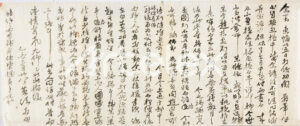Hwang Hyeon (December 11, 1855 – September 7, 1910) was a Confucian scholar, poet, writer, historian, and patriot during the late Joseon Dynasty and Korean Empire.
He is also recognized as a national independence activist and was posthumously honored as a contributor to Korean independence.
In 1910, after the Japan-Korea Annexation Treaty was signed, Hwang, filled with sorrow over the loss of his nation’s sovereignty, committed suicide by poisoning at his home in Gurye, 16 days after the treaty’s conclusion. Before his death, he left behind a final poem of Final Farewell),
Hwang Hyeon’s notable work, “Maechon Yaarok” (Maechon’s Unofficial History), is a chronologically organized historical account that provides valuable insight into the political and social circumstances of the time, and it remains highly regarded as a historical source.
.

